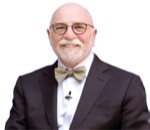This month’s debate focuses on an opinion that may influence the way surgeons practice their trade in the future. It basically questions who should treat patients and how surgeons should be certified as qualified to treat those patients. The question to be debated is: Should specialty-specific surgery in urban areas only be performed by fellowship-trained surgeons?

The debaters this month have very different opinions, and both support their opinions with data. How you will respond to this debate may be influenced by your own history as a surgeon. Whether you are an older surgeon and were trained before fellowship pathways, recently trained and opted for fellowship training or not, or are in the midst of your training and deciding if fellowship is necessary, not only will you have an opinion, but patients, hospitals and institutions (government and insurance companies) that fund the surgery may have an opinion and actually control who performs specialty-specific surgery in the future.
At first glance, this month’s topic may not seem to be the most exciting one we’ve covered, but in terms of the future, it is as important as anything we have previously debated. The conclusions we come to as surgeons may not only affect the future of surgery but determine what our friends, the lawyers, consider standard of care.

So, I encourage you to read this debate carefully, come to a reasonable conclusion, and help guide what pathways we choose for the specialty that we call general surgery. If you don’t become involved, others will be making the critical decisions about the direction general surgery will take in the future, and we know that in the past this has not always worked out well.
Pismo Beach, Calif.

Yes—Specialty-Specific Surgery Should Be Performed Exclusively by Fellowship-Trained Surgeons
Many of my esteemed colleagues and staff in training opine about the glory days when they would confidently and competently perform Whipples, abdominal aortic aneurysm repairs and the first laparoscopic cholecystectomy at their institution, … looking through the scope … with OB-GYN instruments … by candlelight. My question to you today is, would you prefer your surgeon to be a jack-of-all-trades or a master of one?
The American Board of Surgery made the task of supporting my argument straightforward by defining general surgery as “a discipline that requires knowledge of and responsibility for [patients] with a broad spectrum of diseases.” It goes on to state that “comprehensive knowledge and management of conditions in these areas generally requires additional training: vascular surgery, pediatric surgery, thoracic surgery, burns, solid-organ transplantation.”1 It is important to have broad exposure during training, although definitive treatment is best provided by specialists. In urban areas where access and travel are not barriers, specialty-specific surgery should only be performed by fellowship-trained surgeons.
The shifting trend toward specialty training is a classic example of the law of supply and demand. Patients want specialists providing their surgical care. Up to 80% of recent graduates are choosing to pursue fellowship training, demonstrating that the next generation of surgeons believes specialization is a necessity.2 Yeo and colleagues found that 55% of residents surveyed supported the statement, “the modern general surgeon must become specialty trained in order to be successful.”3
What defines “successful”? Safe? Competent? Competitive? Marketable? It is likely a combination of all of the above. In addition, patients have a desire to be treated at centers of excellence by high-volume surgeons. This desire is driven by the vast amount of literature documenting the inverse relationship between hospital and surgeon volume with patient morbidity and mortality. For decades, multiple specialties and societies have demonstrated that hospital and surgical volume positively correlate with improved morbidity, mortality, readmissions and length of stay, particularly in complex cases.4,5 This has been reproduced in multiple specialties ranging from cardiac and vascular, to hepatopancreaticobiliary, bariatric, esophageal and even emergency general surgery procedures.6-11 Schneider et al demonstrated a potential 20% to 30% reduction in morbidity and mortality and an 8% reduction in hospital patient-days by shifting patient care from intermediate and low-volume centers to high-volume ones.12 Avoiding complications by shifting care to high-volume specialists in urban centers is safer, more cost-effective, and the right thing to do for optimal patient care.
There’s a constant buzz regarding adequate training in the era of the 80-hour workweek. This issue is magnified in light of the massive expansion of basic medical knowledge and technological innovation. It is estimated that the doubling time of medical information in 1950 was 50 years, which dropped to seven years in 1980, 3.5 years in 2010, and is projected to be 0.2 years or 73 days this year. Densen aptly demonstrated in his 2010 paper, “Challenges and Opportunities Facing Medical Education,” the clinical implications of medical doubling time. A surgical resident who started training in 2010 and completes seven years of training will experience three doublings of knowledge. What was learned in the first three years of school or training will be just 6% of what is known at the end of the decade 2010-2020.13 Without specialization, it is practically impossible to provide current, data-driven care across a broad array of surgical diseases.
Achalasia is an excellent example of the necessity and advantage of specialization. Slightly more than 100 years ago, Ernest Heller documented performing the first extramucosal esophageal myotomy for achalasia.14 The diagnosis was made through clinical history and radiographic examination. Today the diagnosis is made utilizing a variety of modalities, including clinical history, endoscopy with or without catheter-based impedance planimetry, radiology, and manometry. The disease can be treated medically, endoscopically and surgically. Medical management includes nitrates and calcium channel blockers. Endoscopic treatment options include balloon dilation, Botox (onabotulinumtoxinA, Allergan) injections or peroral endoscopic myotomy. Surgical approaches include open, laparoscopic or robotic Heller myotomy. The disease hasn’t changed, but the diagnosis, pharmacology and procedural therapy is constantly evolving. A patient deserves a foregut specialist who has a standardized treatment algorithm, knowledge of current literature and reproducible surgical outcomes. This is in comparison to a generalist who might perform a single myotomy every few years. Just because you can doesn’t mean you should.
The primary concern of all health care delivery models should first and foremost be patient safety. Specialty surgeons at high-volume centers have demonstrated improved patient outcomes, and these outcomes translate to cost savings for patients, hospitals and the entire health care system. Most residents are electing to pursue specialty fellowship training, making access to specialists in urban areas a nonissue. The only way to maintain and improve patient care in the era of unprecedented medical information growth is narrowing the focus. All signs point to yes, specialty-specific surgery in urban areas should only be performed by fellowship-trained surgeons.
References
- American Board of Surgery. www.absurgery.org/ default.jsp?aboutsurgerydefined.
- Coleman JJ, Esposito TJ, Rozycki GS, et al. J Am Coll Surg. 2013;216(4):764-771.
- Yeo H, Viola K, Berg D, et al. JAMA. 2009;302(12):1301-1308.
- Dudley RA, Johansen KL, Brand R, et al. JAMA. 2000;283(9):1159-1166.
- Luft HS, Bunker JP, Enthoven AC. N Engl J Med. 1979;301(25):1364-1369.
- Vemulapalli S, Carroll JD, Mack MJ, et al. N Engl J Med. 2019;380(26):2541-2550.
- Nathan H, Cameron JL, Choti, MA, et al. J Am Coll Surg. 2009;208(4):528-538.
- Nimptsch U, Haist T, Krautz C, et al. Dtsch Arztebl Int. 2018;115(47):793-800.
- Markar SR, Karthikesalingam A, Thrumurthy S, et al. J Gastrointest Surg. 2012;16(5):1055-1063.
- Zevin B, Aggarwal R, Grantcharov TP. Ann Surg. 2012;256(1):60-71.
- Santry H, Kao LS, Shafi S, et al. Trauma Surg Acute Care Open. 2019;4e000318.
- Schneider EB, Ejaz A, Spolverato G, et al. J Gastrointest Surg. 2014;18(12):2105-2115.
- Densen P. Trans Am Clin Climatol Assoc. 2011;122:48-58.
- Heller E. Mitt Grenzgeb Med Chir. 1914;27:141-149.

No— Specialty-Specific Surgery Should Not Be Performed Exclusively by Fellowship-Trained Surgeons
An initial problem with the idea that specialty-specific surgery in urban areas should only be performed by fellowship-trained surgeons is the suggestion that a surgeon’s location should affect the qualifications required to do a procedure. Patients in nonurban areas both desire and deserve qualified surgeons as much as urban patients. If a surgeon has the appropriate training and experience, the surgeon should be able to perform the procedure whether in an urban area or not. Conversely, if a surgeon is not trained, whether by residency or fellowship, for a particular surgery, then as a rule they should not perform that surgery inside or outside of a city. Fellowship training may help with gaining larger market share in an urban area, but where a surgeon happens to be working now doesn’t change the adequacy of training already received.
Another problem with the proposition being debated is there is no distinct or well-defined category of “specialty.” What constitutes specialty surgery depends on who you ask and remains subjective. No surgeon spends years in training and does not consider himself or herself a specialist, even if other surgeons may disagree. For example, although general surgeons are specialists, a simplistic notion of general surgery is often used as a foil to promote a supposedly “better” specialty option. If there is no clear definition of what specialty surgery is, and it may include any surgery, then arguing that specialty surgery should only be performed by fellowship-trained surgeons is tantamount to arguing that all surgery should be performed by fellowship-trained surgeons. While some may argue this very point because they believe that residency training is inadequate, this opinion denies the capability of the many residency-, and not fellowship-trained, surgeons, both new and old, currently practicing what many would consider specialty-specific surgery with excellent outcomes.
A further difficulty with the proposal under consideration is that restricting surgery to fellowship-trained surgeons assumes that fellowship training is the only way to acquire appropriate training. There is no evidence, however, that training acquired in a fellowship is better than that gained in a residency or through the ongoing skills acquisition that must occur throughout a surgeon’s career. All would agree that surgeons should have appropriate training, but agreement on exactly what appropriate training is and how it is obtained evolves over time. For example, most would agree that only a neurosurgeon has the appropriate training to remove brain tumors and an orthopedic or general surgeon does not. In contrast, consensus on what constitutes appropriate training for various operations within the realm of general surgery may not exist. Thyroid surgery is one relevant example. Many argue that appropriate training for thyroid surgery can be gained in a residency in either general surgery or ENT. Others, however, argue that to be trained to perform thyroid surgery a fellowship is necessary, perhaps a fellowship in endocrine surgery or possibly in head and neck cancer surgery. This one example demonstrates how there may be multiple, overlapping pathways to competency for a given surgery.
In this and other similar examples, if surgery were limited to only fellowship-trained surgeons regardless of the quality of their training and experience, the residency-trained surgeons would be excluded, and patient access to qualified surgeons would diminish. Also, the assumption that fellowship training is the only way to acquire appropriate training disregards the new knowledge and skills that are acquired throughout a surgeon’s career. With the rapidly changing nature of the practice of medicine today, we cannot limit a surgeon’s training or practice only to what is learned during the formal training years, whether residency or fellowship. New techniques, new information, new fellowships and other innovations are being developed regularly. Surgeons must be able to adapt to changing techniques as well as to adopt new procedures.
If we were to restrict procedures only to those with fellowship training, then surgeons who acquire new skills and knowledge during their careers would be kept from changing their practice with the evolution of medicine. Robotic surgery is a recent example of this: Many surgeons performing excellent robotic procedures learned these skills many years after completing a residency or fellowship. If a broad consensus exists on what constitutes appropriate training for a given surgery, particular pathways can be agreed upon to guide who performs a given surgery. For many operations, however, there is no such consensus.
Appropriate training is a necessity, in any setting and for any surgery, but the title of where appropriate training is acquired is of little consequence compared with the quality of the care given after the training is complete. “Specialty-specific” surgery in urban areas should not be restricted to fellowship-trained surgeons. Surgery should be performed by well-trained surgeons, irrespective of whether that training was acquired in a fellowship and regardless of where the surgeon is practicing.
Dr. Duke’s Rebuttal to Dr. Stovall
Many of the points Dr. Stovall makes in his argument are well taken. Unfortunately, they don’t summate to support the stance that specialty-specific surgery in urban areas does not need to be performed by fellowship-trained surgeons. All patients, regardless of location, deserve qualified and capable surgeons. I cannot argue this point and I will cede the issue, but I will take it one step further. Patients don’t just deserve a capable surgeon; they deserve an expert surgeon. Many generalists are very capable of performing a wide variety of procedures, but as the recent AT&T commercial aptly pointed out, a surgeon who is “just OK, is not OK.”
Dr. Stovall correctly points out that specialty definitions are unclear with significant overlap. My argument is not about which specialty should own each disease, just the fact that fellowship training produces a more qualified expert to address complex surgical issues. It is not feasible to suggest that all surgery should be performed by fellowship-trained surgeons. There is a growing shortage of all health care workers, particularly surgeons, and more so, general surgeons. While the population is growing and life expectancy increasing, the number of general surgery graduates has dropped from 1,047 in 1981 to 909 in 2008.1 With more of these graduates obtaining fellowship training, the shortage is magnified. There will always be a place for qualified and capable graduates of general surgery residencies. The shrinking pool of graduates best serves our communities by treating a broad variety of routine general surgical issues, usually in rural locations.
My argument does not stand on the concept of surgical competency and its definition. The Accreditation Council for Graduate Medical Education has faced the continuous struggle of identifying and defining competency. It has attempted to quantify competency based on length of training, number of cases, written tests, oral boards and maintenance of certification. None of these objective measures has adequately separated competent from incompetent surgeons, so one should not attempt to use them to define generally competent and specialty competent. One can, however, utilize fellowship training as a proxy for specialty competence. Each residency and every individual graduate within that residency has very different experiences. Some residencies provide its graduates with unique exposure to certain disease processes that is usually obtained in fellowship training. My argument is not meant to restrict these types of graduates from performing the surgery they are experts at performing. The goal is to align patients in need of complex care with those best capable of providing it.
Reference
- Sheldon GF. J Gastrointest Surg. 2011;15(7):1104-1111.
Dr. Stovall’s Rebuttal to Dr. Duke
In our debate on whether or not specialty-specific surgery in urban areas should only be performed by fellowship-trained surgeons, Dr. Duke argues that specialization has benefits and implies that specialization requires fellowship training. No explanation is given for why only fellowship-trained surgeons are capable of specialization. Dr. Duke goes on to discuss that an increase in volume may be associated with improved outcomes. While this can be true, a surgeon’s volume now is not necessarily related to whether or not they were fellowship-trained. There are many high-volume, residency-trained surgeons who likely reap the proposed benefits of increased volume without fellowship training.
Dr. Duke further points out that the practice of medicine changes and that specializing is one way to help manage this change. Again, this does not explain why fellowship-trained surgeons are the only surgeons capable of specialization. As discussed before, appropriate training is a necessity; however, the title of a surgeon’s formal training is not related to whether or not a surgeon is capable of specialization in their area of expertise.
In summary, increasing volumes and specialization may indeed have benefits, but it does not follow that only fellowship-trained surgeons are capable of specialization or high volumes. Specialty-specific surgery in urban areas should not be performed exclusively by fellowship-trained surgeons. Surgery should be performed by well-trained surgeons with high-quality outcomes, regardless of where the surgeon is practicing and whether that training was acquired in a fellowship, a residency, or through the ongoing education required of a practicing surgeon.



Please log in to post a comment
Ah, no. Some of the best subspecialty surgeons I know are general surgeons with a boatload of experience, knowledge and no specialty fellowship training. This type of arguement is why general surgery is dying.
While it's clear a handful of procedures are so infrequently performed they should be logically referred out to tertiary centers or subspeciality general surgeon to centralize volume based outcomes (whipples, liver resection, APR's, J-pouches, esophagectomy, revision bariatric surgery, large burns), this is really only a handful of cases within general surgery. Suggesting things like primary bariatric surgery, breast, endocrine, or most colon cases need a tertiary specialist (as is being inferred by the PRO author here) is ridiculous.
The insight I get from talking to residents in training seems to be that 1.) they do not feel that they have adequate hands on technical operative training to go out into practice and serve, 2.) they seek to go into fields with better reimbursement (has anyone published data on actual fee for service payment for EMTALA mandated cases or even insured standard deductible payments made in GS?) and without the bothersome "call responsibilities" engendered with routine GS, and 3.) they want either a practice with defined in and out hours and days or a job they can clock in and out on. Don't blame them, I would have liked that back in the day - but then do you have to limit "Specialty Surgery cases to where you have a team of said surgeons, so you have specialty cross-coverage for every potential organ system? Key - training, volume, system support, facility capability, not just fellowship or not.